#JoesBedStuyBarbershopWeCutHeads
Explore tagged Tumblr posts
Text
Ranking : Spike Lee (1957 - present)
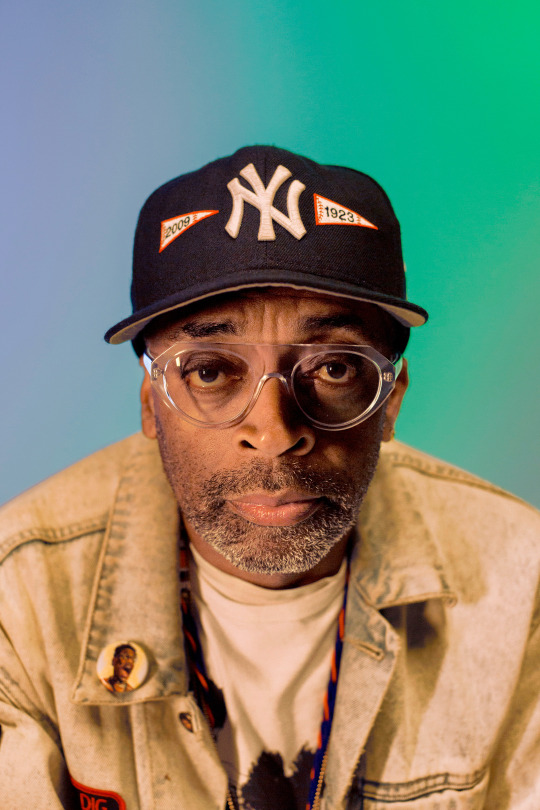
There have been countless directors whose careers have spanned my lifetime, but out of these countless masses, the one whom I can find the most in common ground with (as well as endless inspiration from) is Spike Lee. A New Yorker through and through, Lee went from a series of films that seamlessly blended hip-hop and old school Hollywood aesthetics, to personal films, to his take on the blockbuster, and currently, to the point where his canon has earned him artistic freedom and expression that many of his peers have not been able to achieve. He is the perfect bridge between the director-driven mindset of the 1970s and the cultural boundary-pushing films of the 1990s-forward. Not everything that he directed was a hit or a masterpiece, but this man has more iconic films under his belt that some directors have films to their name. That being said, it’s time to stir the pot and make an attempt at the monumental task that is ranking the films of Spike Lee.
I will only be including theatrically released feature films of Spike Lee that I have seen. His documentary work will be excluded, as well as his films I have missed or have yet to see. Here is a list of these films : Da 5 Bloods, Chi-Raq, Da Sweet Blood of Jesus, Joe’s Bed-Stuy Barbershop: We Cut Heads, 4 Little Girls, The Original Kings of Comedy, When the Levees Broke, A Huey P. Newton Story.
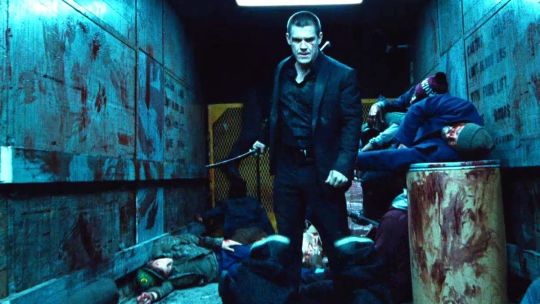
20. Oldboy (2013) Every film that you make can’t be a winner. In the case of Lee’s attempt at remaking Oldboy, there were already two major strikes against it : a superior version of the film already existed, and that version was the middle film of a trilogy. I doubt that even a team of the most talented directors could have made a superior version of Oldboy that surpassed the original, but after 30 years of making films, it’s admirable that Lee would even attempt something so bold and seemingly insurmountable.

19. Red Hook Summer (2012) When your film catalog covers three decades, there’s bound to be some overlap, be it stylistically or narratively. I’ve only seen Red Hook Summer once, but it was impossible for me to look at it subjectively, as it seemed to be a modern day mirror to another one of Lee’s explorations of New York adolescence. While this story is not a direct copy of a Spike Lee film that I will go into more detail on later, it does feel like the update equivalent that focuses on himself rather than the childhood of his sister. While an entertaining film from what I can remember, it sits behind a list of previous impressive achievements.
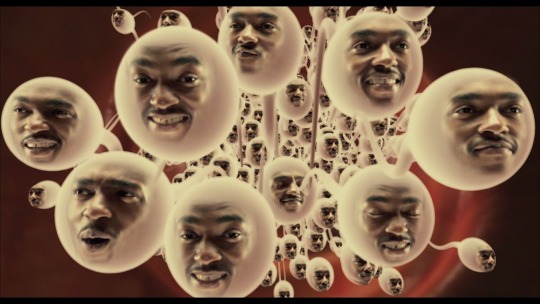
18. She Hate Me (2004) Humor has been an element present in a number of Spike Lee films, but for my money’s worth, this film is the closest thing to an outright comedy that he ever made. Like a number of films on the back half of his career, he is touching upon important topics (sexuality and toxic masculinity, in this case), but these are topics that he has hit with more nuance and creativity in earlier films. This film did help transition Anthony Mackie into a leading man role, and he certainly took that opportunity and ran with it, so She Hate Me could be heralded for that alone. That being said, it was a great idea that slightly missed the mark, therefore placing it on the backend of the memorable films list for Lee.
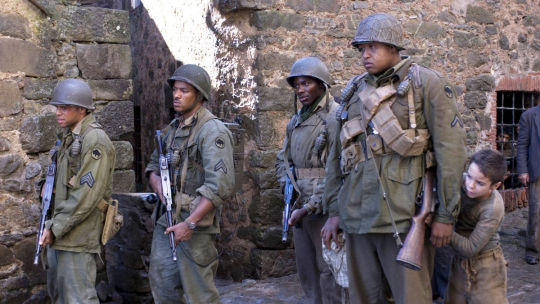
17. Miracle at St. Anna (2008) This film had the potential to be a breakout resurgence for Spike Lee. He was coming hot off the heels of Inside Man, a perfect blend of Lee’s style and modern Hollywood fare, so having a period-piece war film seemed like a slam dunk. His cast was strong, while also being filled of relatively unknown young actors on the verge of becoming stars in their own right, but for whatever reason, this film failed to make a connection with the masses. While I do remember mostly enjoying my watch, I also remember feeling a bit underwhelmed by the ending, which in turn left me lacking a reason to revisit it. Maybe it’s a hidden gem that I haven’t seen enough times yet, but at this moment in time, its home is near the bottom of Lee’s impressive list of films.
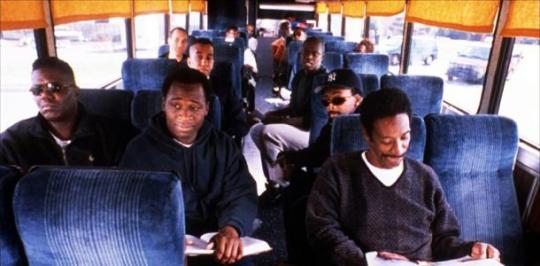
16. Get on the Bus (1996) Many people’s eyes were opened to racial injustices during the COVID-19 pandemic, as several African-American men and women found themselves on the wrong end of violent acts from the police and other citizens in the midst of a ‘shelter-in-place’ era. Not only have these injustices been going on for my entire lifetime, but they’ve been a generational trauma for many African-Americans in the United States. When the Million Man March was announced in 1996, it was not surprising that Spike Lee took it as an opportunity to both document the march and build a narrative around it in which he could showcase a collection of actors he’d either featured in past films or would work with in future films. To my knowledge, this is one of maybe two or three films about the event, and it was certainly the film released in the closest proximity to it. For an independent, quick shoot, it definitely stands up, but in comparison to Lee’s other works that benefited from full crews and production schedules, it finds itself paling in comparison.
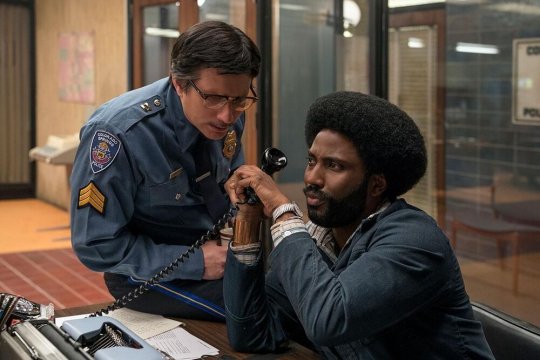
15. BlacKkKlansman (2018) Despite the fact that this is the film that finally got Lee some sort of recognition at the Oscars, BlacKkKlansman was not quite the true return to form that many fans of Spike Lee expected. The film had moments of humor, compelling moments that directly focused on racial injustice and systematic oppression, and it pulled no punches while doing so. Like a handful of Lee’s other films, however, this one falls when compared to his other films that deal with similar subject matter. Adam Driver continued to show fans his expansive range, and Jasper Paakonen deserved INFINITELY more recognition than he got, but ultimately, this film checks all the ‘good’ boxes where it was expected to check the ‘great’ ones.
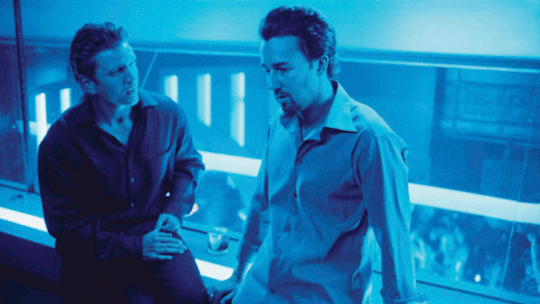
14. 25th Hour (2002) As the year 2000 approached, Lee seemed to attempt and make a shift from films that specifically spoke on aspects of the African-American experience in favor of occasional films that reached a wider audience. While Summer of Sam would be considered the first foray into that realm, the true mark of this elevated sense of creative duty came in the form of 25th Hour. With the actors in tow, in tandem with the cinematography and skilled directing ability displayed in the film, one would expect a powerhouse movie, but ultimately, the expectations exceeded the narrative of this film. This one is entertaining, don’t get me wrong, but I personally did not find a connection with the story, meaning that the film was, at best, fun to watch.
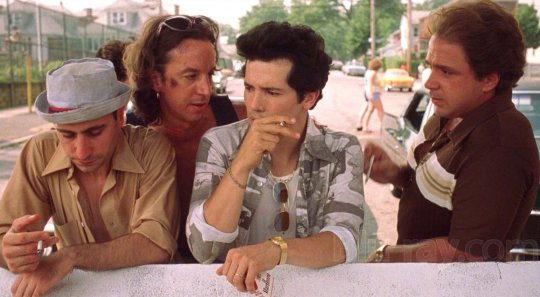
13. Summer of Sam (1999) I’ve been a true-crime junkie since my early teenage years, and even the most casual of true-crime fans is more than likely familiar with David Berkowitz, also known to many as the Son of Sam. While Red Hook Summer did come out after Summer of Sam, it’d be hard to deny the fact that Summer of Sam is the last of Lee’s love letters to New York City. This was the film where Spike Lee stepped out of his comfort zone of the African-American experience, choosing instead to focus on more colloquial aspects of the American experience, and for my money’s worth, it was the start of an important shift for him. Despite being light on the Son of Sam action, the actors this film does focus on (and the story it chooses to tell) is a fresh look at a familiar era, and a crowning achievement that signaled new things for Spike Lee.
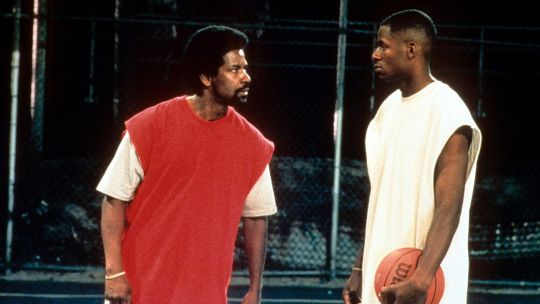
12. He Got Game (1998) If you made a Venn diagram of people familiar with Spike Lee, the two biggest circles would be film fans and people who have seen at least one New York Knicks game since the 1990s. Therefore, the only thing that was really and truly surprising about He Got Game was the fact that it took Spike Lee 15 years and 11 films to make a film about basketball. On the outset, that’s exactly what it is : a film about basketball. Viewed with a wider lens, however, this story is a love letter to one of the most popular American inventions, and a story about how it can serve as a common-ground bridge for those from wholly different walks of life. The juxtaposition of Aaron Copland and Public Enemy made the soundtrack provocative, and Ray Allen stood out in his lead role, holding his own against the living legend that is Denzel Washington, who is always good for a stellar performance in a Spike Lee joint. Don’t mistake this film’s place on the list for my feelings about it... this is a stellar film, in my opinion, and one of my favorites to revisit.
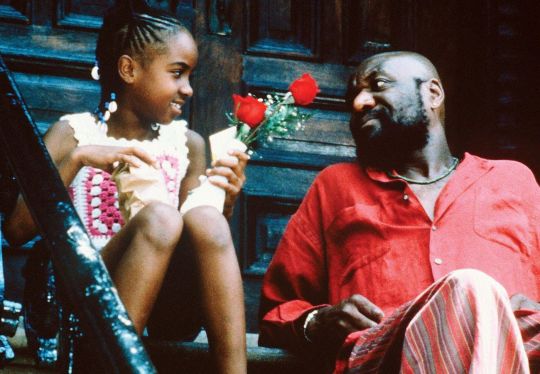
11. Crooklyn (1994) After making what many would argue to be the most important film of his career (which we will eventually get to), it’s no surprise that Spike Lee circled his creative wagons and made the focus of his next film inward. Crooklyn covers what seem like many personal bases for Spike Lee : he portrays the New York of the past vividly and beautifully, while spinning a true-to-life tale based on his personal experience, but opting to focus on his sister Joie Lee and his father Bill Lee. Of Lee’s many, many films, this was the one that I felt the most compelled to see at the time of release, it is one of the two I have the most vivid memories and recollections of, and it has a number of stylistic choices that keep me wonderfully perplexed to this day. Despite not cracking the top ten Spike Lee films, this one ranks high on the list of Spike Lee films that hit the bullseye of my heart.
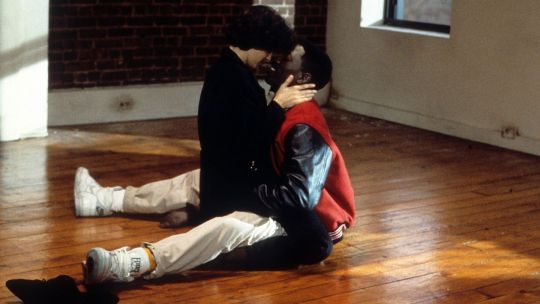
10. Jungle Fever (1991) Interracial romance is one of those things that seemingly will always be a sensitive subject. I’ve heard many people say that Jungle Fever has a dated look on the subject, but I’d argue that the film was very forward thinking, especially in showing that an interracial romance is not the answer to the cultural and societal problems that life presents us. The movie also touches deeply on drug addiction without crossing over into the realm of being preachy or talking down to the viewer. It didn’t hurt that Stevie Wonder also managed to create a soundtrack’s worth of new material that instantly brought the seemingly controversial film directly into the public eye. Maybe it is dated... maybe it is uncomfortable... but what it is, undoubtedly, is an early masterpiece that fell near the end of one of the most stellar introductory runs that any filmmaker has presented us.
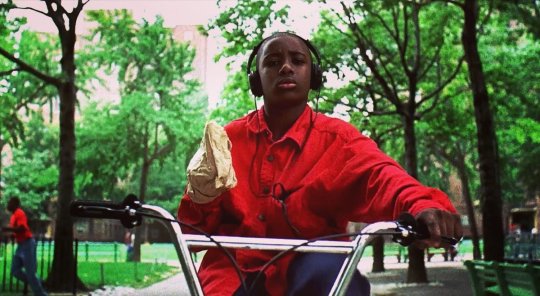
9. Clockers (1995) Ever wonder what would happen if a Martin Scorsese film found its way into the hands of Spike Lee? Well, wonder no longer, because Clockers is out there waiting for you to discover it. The amount that this movie gets slept on is an outright tragedy and travesty. The soundtrack is KILLER, the color-timing puts the viewer in an immediate ‘cold-world’ environment, the order of operations presented in this film is brutal and unforgiving, and yet, it manages to be one of the most heartfelt films in the Spike Lee canon. EVERYONE presented in this movie brought their A-game to the table, from the Spike Lee regulars like Isaiah Washington, John Turturro and Harvey Keitel, to the glorified cameos and supporting roles, like Thomas Jefferson Byrd, Sticky Fingaz and Fredro of Onyx, and relative newcomer but promising leading man Makhi Phifer. This film is intense, but it is more than worth your time and attention.
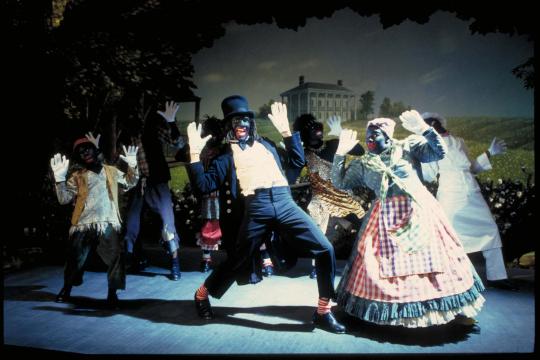
8. Bamboozled (2000) Bamboozled was shocking when it was released, to say the least. The true revelation, however, has been the way that relevance has seemingly caught up to the film... fake wokeness, modern day minstrel shows, low budget/high yield television and behind the scenes scandals have all come to light many years after this film had its initial run. While this film did not transition Savion Glover into the world of superstardom and crossover success, it certainly crystalized his immense talent and charisma in a way that his recordings of stage shows had previously been unable to capture. The imagery of America’s strange fascination with the dehumanization of African-Americans for generation after generation is rich, and every performance is compelling. This was definitely Spike Lee’s first masterpiece of the new millennium, and at the risk of being bittersweet, probably one of his last truly stunning achievements.

7. Girl 6 (1996) Every ranking list has to have the controversial placement, so here’s mine... Girl 6 started as a lingering interest for me. The internet was just about to change the world, but we were still locked into landlines at the time, with cellular being a luxury, so the world of phone sex still had relevance. Upon seeing the film, however, I quickly realized that the phone sex exploration was playing counter to a Hollywood hopeful narrative that was brave enough to explore new ground (per the changing times) while being mindful enough to pay homage to the countless stories of Hollywood hopefuls that came before it. Many of the shifting cinematography looks that made Clockers so gritty were used to make Girl 6 feel dangerously euphoric. The list of cameos and brief supporting roles were not only a who’s who of cultural movers and shakers at the time, but it ran about as long as my arm. I recently revisited the film and expected it to be a bit more on the side of kitsch, but surprisingly, the times had not been as hard on the film as I anticipated. The film shifts quite well between light and dark, and even the ending that initially slightly annoyed me has found a strange sort of charm in my older, more life-experienced years. Add to this the hilarious running joke of Isaiah Washington being a kleptomaniac in nearly every scene he appears in, and there’s a realization that there are sublayers going on right in front of our eyes. This collaboration with Suzan-Lori Parks gives me hope that maybe one day, we’ll get a Spike Lee film adaptation of Topdog/Underdog, but we will see.
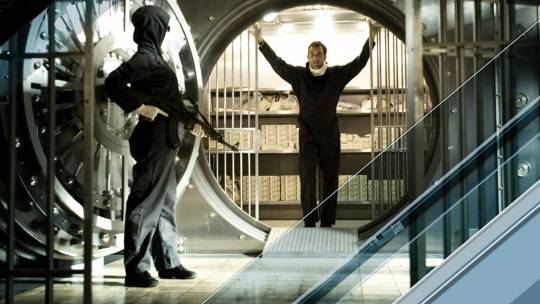
6. Inside Man (2006) If you had to pick the most ‘Hollywood’ of the Spike Lee films, my money would be on this film ending up as the chosen one. By this rationale, it makes the film that much more impressive, as it also stands out as one of the most compelling, well-directed and well-acted Spike Lee films. At the time of its release, it was not only a return to form, but it seemed to signal an evolution. Spike Lee was able to use his signature, iconic shots that he was known for, like his camera-turned-to-dolly float, or the push-pull zooms, but he was also able to incorporate familiar Hollywood tropes, including the twist ending, and give them a breath of fresh air via an newly infused sense of style. Lee also stayed true to himself by educating as well as entertaining, bringing to light how atrocities from the past have more than historical connections to modern day benefactors. While I do think there are a handful of better ‘pure’ Spike Lee films, if I had to pick one movie for a curious party that my be skeptical, this would easily be my pick.
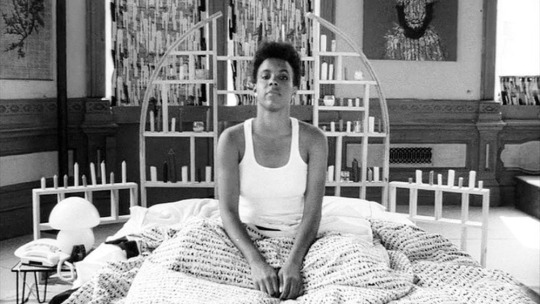
5. She's Gotta Have It (1986) Oh, the joy of having your first film be a breakout success, but not to the point of pigeon-holing your career. She’s Gotta Have It was an important introductory step to the masses for Spike Lee : it showed his dedication to putting African-American performers into familiar narratives, it showed an appreciation for the voice of women on film that many first-time directors would likely not want to be the initial association to their style, it introduced the world to Mars Blackmon (who became a cultural icon), and it presented sense of style that switched on the viewer the moment before they could label it pretentious. Having characters address the camera made it feel like a play or a novel, but when the film shifted into movie mode, the camera moved with the energy and grace of a performance artist or dancer, which in turn fed into the character development and narrative it presented. As a bonus, the property found new life nearly 40 years later as a Netflix original series, introducing new generations to a modern day classic statement of feminism, and how it does not excuse bad behavior.
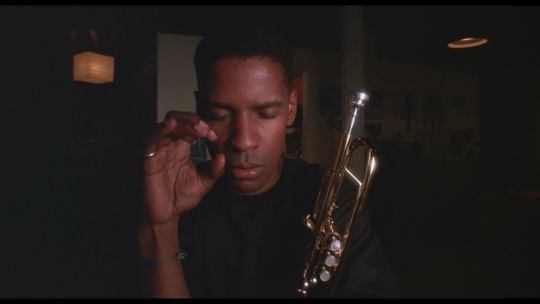
4. Mo' Better Blues (1990) Those familiar with Spike Lee’s family know that he was raised by jazz bassist Bill Lee, who scored some of Spike’s early films. By this rationale, it comes as no surprise that Lee could make such a rich, nuanced and heartfelt film about jazz music that serves as an allegory for the hurdles that beset those driven purely by passion. The conversations about race, musical integrity and commercialism also work on both direct and symbolic levels, giving Mo’ Better Blues some of the highest repeat viewing value of any film in the Spike Lee canon. The film also marked the first collaboration of Spike Lee and Denzel Washington, a combination that yielded artistic, career, creative, commercial and critical success, led to a multitude of classic performances, and ultimately led to a generational collaborative changing of the guard in the form of John David Washington. The only negative I can give this film is that it did not lead to future films that explored genres of music like hip-hop and soul. While She’s Gotta Have It did focus heavily on relationships and intimacy, it could be argued that Mo’ Better Blues was Spike Lee’s first adult contemporary film, and his first look at modern romance in the more ‘traditional’ sense.
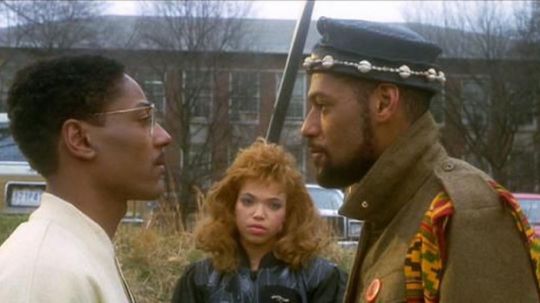
3. School Daze (1988) The African-American college experience, specifically that of HBCUs (Historically Black College and Universitys), is one that has often been neglected in the annals of film history. As a graduate of Clark Atlanta University, it makes total sense that Spike Lee’s second commercial film would focus on that specifically overlooked culture, as it became a fitting vehicle for establishing Lee’s sense of duty and responsibility for education, sharing the African-American experience to the masses, and exposing systematic injustices and hypocrisies that kep the disadvantaged in a disadvantaged position. The real genius of this film, however, comes in the juxtaposition of presentations it jumps between... for the majority of the film, it is an unflinching look at the coming of age process that teenagers must traverse on their way to adulthood, including the hurdles of romance, forming your identity and expanding your view of the world around you. At key moments, however, the film switches into musical numbers, song performances and school dances that not only expand on the inner feelings, emotions and desires of characters, but heighten the reality of the story to a dizzying pace. In all the ways that She’s Gotta Have It put the world on notice that a unique voice was present in the industry, School Daze signaled the continuation of a run that would last another handful of films, and it firmly established Spike Lee as a generational talent.
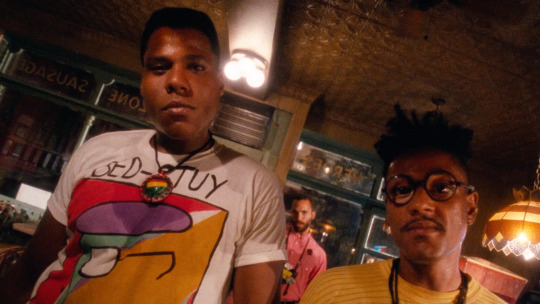
2. Do the Right Thing (1989) I would guess that over the course of a career, a director secretly hopes that at least one of their works comes close to making an impact culturally. In the case of Spike Lee, however, we have a man who released two cultural-shifting films, and did so in a span of less than 5 years. They say the third time is a charm, and that’s exactly what Do the Right Thing was for Spike Lee. The vivid colors, stylistic earmarks, historical and cultural sense of urgency and focus on telling minority stories all expanded greatly with this film, which acted as both a parable of how past injustices can come back to haunt you, and a harbinger of how the reactions to these continued injustices would only amplify if not addressed. The fact that Spike Lee not only directed this film, but played the lead actor as well, is a monumental achievement, especially considering how few flaws the film has, if any. Several established actors played some of their most iconic roles in this film, and a breadth of newer, younger faces exploded onto the scene, almost all of whom either continued to work with Lee or found themselves evolving their careers in the wake of Do the Right Thing. The film is also directly responsible for perhaps the most iconic hip-hop song of all time, Public Enemy’s classic protest anthem Fight The Power. Any fan of film would be foolish to skip the Spike Lee catalog, but regardless of whether you’re interested in his work or not, this film is one of two he made that should flatly be considered required viewing across the board. The other one, being...
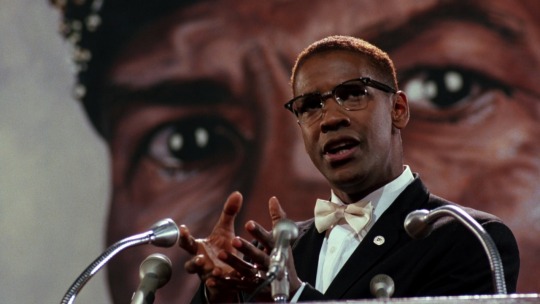
1. Malcolm X (1992) For everything that Do the Right Thing did for Spike Lee and those involved in the production, the monumentally powerful biopic Malcolm X did all of that while also managing to humanize, canonize and create and icon out of a man that America tried its best to demonize. The masterful hand that Lee used to direct this film shows, as this film is the most ‘every frame a painting’ in his canon. Everything from the period costuming to the locations to the dance numbers to the cinematography absolutely leaps off of the screen. The editing is kinetic, the performances are full of life and depth, and the narrative does just enough going forwards and backwards to make proper connections without beating it over the head of the viewer. The respect shown to Malcolm X is massive, so much so that almost seemingly overnight, Malcolm X went from being a feared and often heavily criticized sign of aggressive blackness to a commercial commodity and household name, with the famous X suddenly adorning t-shirts, baseball caps and necklaces of all American youth, not just minorities. The impact of this film was so immediate that many schools held field trips for viewings, which further cemented the immediate and historical value of the film. Often, the connotation of saying someone ‘peaked’ for a film so early in their career would be negative, but the heights to which Malcolm X achieved on all fronts meant that even if the rest of Lee’s career was a steady decline (which it certainly wasn’t), he more than likely still would have ended up in a pantheon far above that of the average director.
With projects reportedly in the early stages of development, it doesn’t look like Spike Lee has any plans on stopping anytime soon. I certainly owe it to myself to see the handful of his films and documentaries that I’ve not seen yet... who knows, perhaps I may even go back one day and add the documentaries into the list, or find a surprise gem in one of his more recent movies I’ve yet to see.
#ChiefDoomsday#DOOMonFILM#SpikeLee#JoesBedStuyBarbershopWeCutHeads#ShesGottaHaveIt#SchoolDaze#DoTheRightThing#MoBetterBlues#JungleFever#MalcolmX#Crooklyn#Clockers#Girl6#GetOnTheBus#HeGotGame#SummerOfSam#Bamboozled#25thHour#SheHateMe#InsideMan#MiracleAtStAnna#RedHookSummer#Oldboy#DaSweetBloodofJesus#ChiRaq#Blackkklansman#Da5Bloods
17 notes
·
View notes